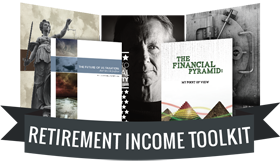Now, as I do so, I also run into people’s attitudes about their wealth.
I’ve made a close study, over the years, of how money “worksâ€, and just what it is that propels certain individuals and families into great quantities of resources … and what also brings them down.
You see, sometimes the very wealthy begin to act like they’re poor.
It’s the beginning of a bad problem. And, it’s also something to watch out for in your children — because it will give you a clear picture about what might happen should you bequest your resources to them without a clear estate plan, for example. I’ve compiled a group of behaviors characterizing the financially-strapped.
You may have resources NOW … but are you:
* Spending money on things you really don’t need: I’m sure we’ve all got one of those friends who just loves to spend money, and buy things just to say they have them. The newest iPhone just came out? They buy it even though they already have an older version. A new TV came out with a higher refresh rate than their current one? They buy one so they can say they have the newest and latest technology.
That may be fine for a certain amount of time, but there is something deeper happening in the heart, there, which if left unchecked, can signal a decline in wealth. Because it starts with the iPhones … but where does it end?
* Ignorant about where your money is going: Far too often people who are broke find themselves short because they’ve never tracked their monthly cash flow and their small expenses are adding up to consume everything they bring in. They really need to track their expenses for a month or two so that they can set up a plan.
But the wealthy sometimes begin to believe that they’re immune to such proletarian concerns, and allow the same bad habit to encroach into their portfolio. Don’t let up — but, of course, don’t fall into obsession (e.g., are you checking your accounts every day? That’s also a problem!).
* Blaming your problems on outside forces: People don’t like to see themselves as the source of their problems. While people certainly have problems that aren’t caused by something they’ve done, far too often they will also try to shift blame when they should be looking at themselves. They blame their friends, family and the government. They believe that “the little guy just can’t get aheadâ€.
